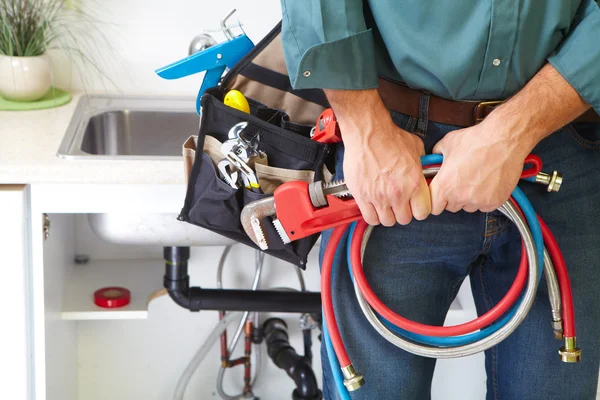Are you tired of running out of hot water during a shower or dealing with the bulky tank in your basement? If you’re considering an upgrade to your home’s water heating system, a tankless water heater might be the perfect solution. In this article, we’ll explore what tankless water heaters are, how they work, and why they could be the ideal choice for your home.
What is a Tankless Water Heater?
Unlike traditional water heaters that store a large reservoir of hot water, tankless water heaters heat water on demand. This means they don’t keep a tank of hot water ready at all times; instead, they heat water directly as it flows through the unit. This on-demand heating method makes them more efficient and convenient.
How Do Tankless Water Heaters Work?
- Instant Activation: When you turn on a hot water tap, a flow sensor in the tankless water heater detects the water flow. This triggers the heating element or gas burner to start heating the water.
- Rapid Heating: The water travels through a heat exchanger (in gas models) or electric heating elements (in electric models), where it is rapidly heated to the desired temperature. This process ensures you get hot water almost instantly.
- Consistent Temperature: The heater continuously monitors the water temperature, adjusting the heating elements or gas flow to maintain a steady, comfortable temperature. This ensures that your hot water is always at the right temperature, whether you’re taking a shower or washing dishes.
- Energy Savings: Once you turn off the tap, the unit stops heating water, saving energy and reducing your utility bills. This on-demand heating is one of the main reasons why tankless water heaters are more energy-efficient than traditional tank heaters.
Benefits of Tankless Water Heaters
- Energy Efficiency: By heating water only when you need it, tankless water heaters reduce standby energy losses, which can significantly lower your energy bills.
- Space-Saving Design: Without a bulky tank, tankless water heaters are compact and can be installed in small spaces, such as closets, utility rooms, or even outside your home.
- Endless Hot Water: Since they heat water on demand, you don’t have to worry about running out of hot water. This is especially beneficial for large families or homes with multiple hot water needs.
- Long Lifespan: Tankless water heaters typically last 20 years or more, which is longer than the 10-15 year lifespan of traditional tank heaters.
- Improved Safety: Without a storage tank, there’s less risk of leaks or explosions caused by a tank rupture. Additionally, many models come with advanced safety features, such as automatic shut-off if the water temperature gets too high.
Considerations Before Switching
- Initial Cost: Tankless water heaters have a higher upfront cost compared to traditional tank heaters. However, the energy savings over time can offset this initial investment.
- Installation Requirements: Proper installation is crucial. You may need to upgrade your gas lines or electrical system to accommodate the new unit. It’s advisable to hire a professional plumber to ensure the installation meets all safety standards.
Choosing the Right Tankless Water Heater
When selecting a tankless water heater, consider the following:
- Flow Rate: Determine the flow rate you need based on your household’s hot water usage. This is measured in gallons per minute (GPM). For example, a shower uses about 2.5 GPM, while a dishwasher uses around 1.5 GPM.
- Temperature Rise: Calculate the temperature rise needed to heat your incoming cold water to the desired hot water temperature. For instance, if your incoming water is 50°F and you want it at 120°F, you need a 70°F temperature rise.
- Fuel Type: Tankless water heaters are available in gas and electric models. Gas units typically have higher flow rates and are better for larger homes, while electric models are easier to install and perfect for smaller homes.
Conclusion
Switching to a tankless water heater can be a smart move for your home, offering endless hot water, energy savings, and a space-saving design. While the initial investment may be higher, the long-term benefits and efficiency gains make it a worthwhile upgrade. If you’re ready to make the switch, consult with a professional plumber to find the best model for your needs and ensure a smooth installation process.

